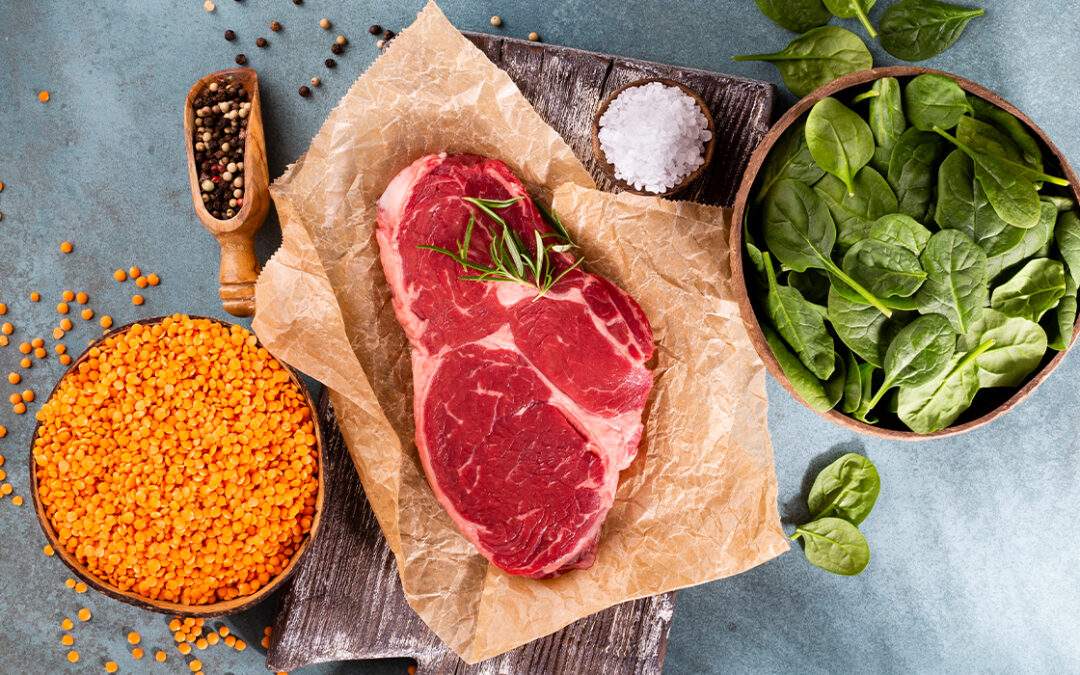Iron is an essential mineral for the human body, and it plays a critical role in various physiological processes. It’s important to maintain an appropriate level of iron in the body. Iron deficiency can lead to a condition known as iron-deficiency anaemia, which is characterised by symptoms such as fatigue, weakness, pale skin, shortness of breath, and impaired cognitive function. On the other hand, excessive iron intake can be harmful and may lead to iron overload disorders.
Dietary sources of iron include red meat, poultry, fish, beans, lentils, tofu, fortified cereals, spinach, and other leafy greens. Iron from animal sources is more easily absorbed by the body than iron from plant sources.
Vitamin C can enhance the absorption of iron, so consuming foods rich in vitamin C can be beneficial.
Some benefits include:
Oxygen Transport: Iron is a crucial component of haemoglobin, a protein found in red blood cells.
Energy Production: Iron is involved in the electron transport chain, a series of biochemical reactions that occur in the mitochondria.
Hormone Production: Iron is a co-factor for enzymes involved in the production of certain hormones, including thyroid hormones.
Brain Function: Iron is important for the development and function of the brain. Iron deficiency can have long-lasting effects.
RDA
Adults – 150mcg per day

